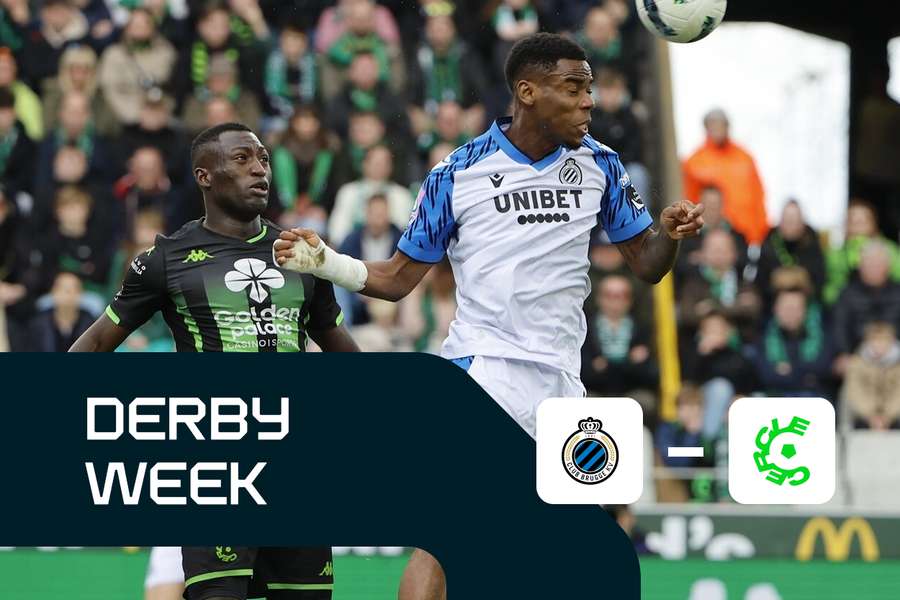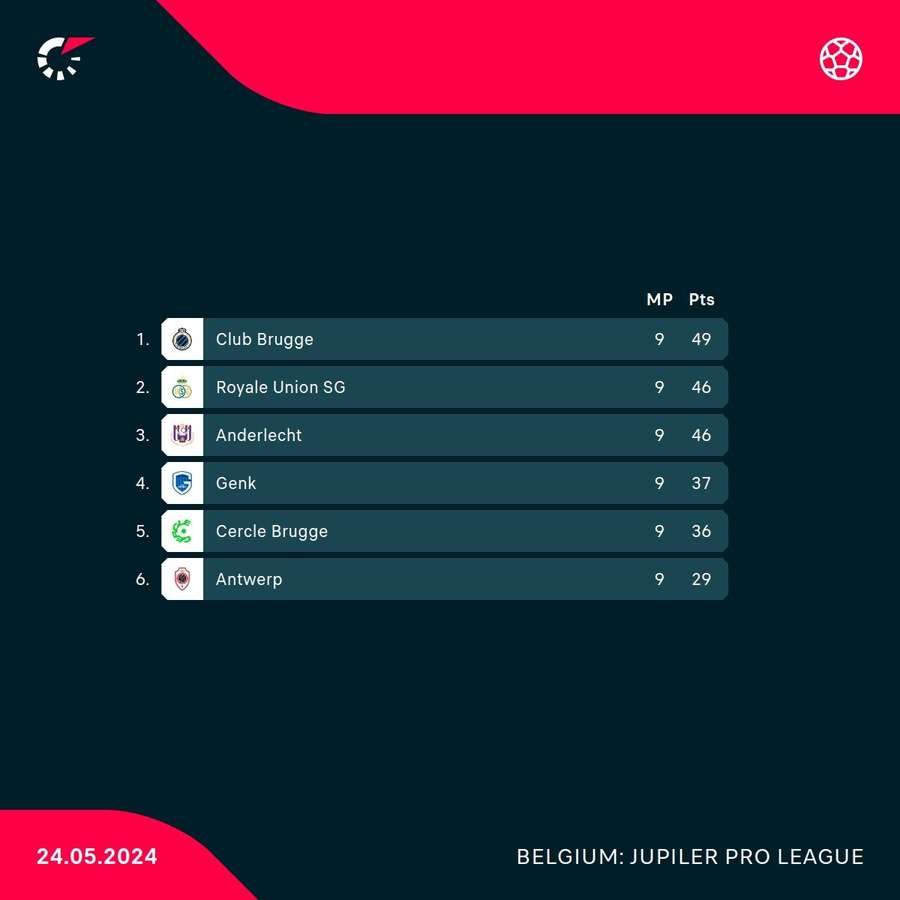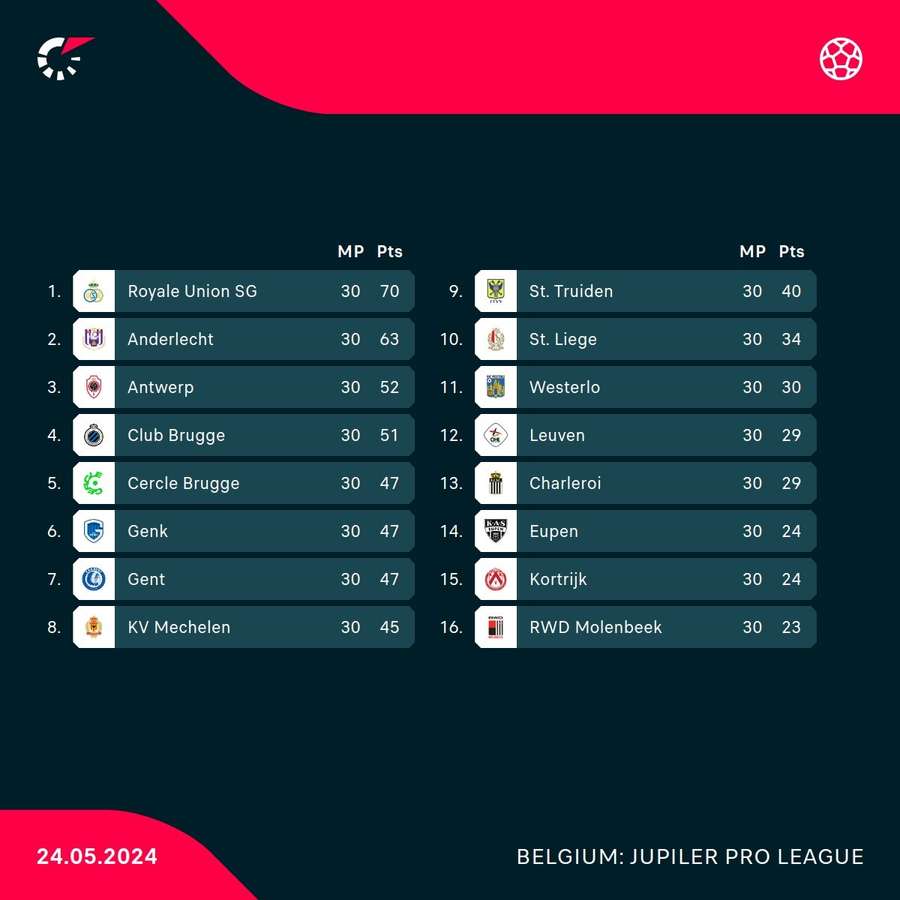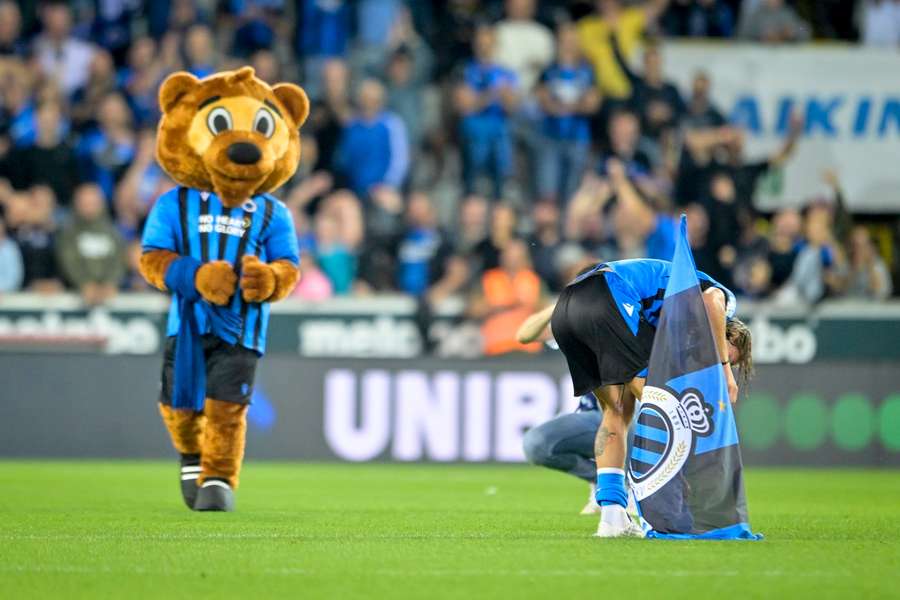Derby Week: Club and Cercle meet in Bruges derby with massive implications

The next Bruges derby, which will be played in the final round of the championship phase in the Jupiler Pro League, has a lot of narrative: Club Brugge is fighting for yet another title and Cercle Brugge is close to clinching a European berth.
Origins in education
As in other European cities and regions, the English have played a major role in the development of football in Bruges. After the Battle of Waterloo in 1815, a large English community of retired soldiers and lower nobility settled in Bruges, West Flanders, and the city also attracted many English manufacturers who developed linen manufacturing and other industries in the area. In addition to the development of industry and commerce, the strong English influence in the city was reflected in education and also in sport.
A number of schools inspired by the English education system were established and football tournaments were held in which pupils and students from each school competed. In addition to the English schools, there were, of course, ordinary schools run by the public authorities and church schools. However, the rivalry between the schools and, more importantly, the values they represented, had grown beyond tolerable limits.
In order to avoid direct conflict between the educational institutions, only graduates of each school were allowed to participate in the original school matches. And it is from these circles that both of today's big Bruges clubs originate.

Club Brugge was founded in 1891 by a group of football lovers who got together at the school matches described above. They recruited other members regardless of which school they attended, which church they belonged to, etc.
In contrast, Cercle Brugge has a much clearer history. It was founded in 1899 by former students of a Catholic Franciscan school. The team was called the Brothers. It was a prestigious association because it was patronized by the highest circles of the city and provincial government.
While Club was formed and profiled as a liberal club without emphasis on one ideology and thus became a popular club, Cercle presented itself as a homogeneous, Catholic association with clearly defined rules. Club gained popularity among the lower and middle classes of urban society and among people from the rural hinterland of Bruges. Hence one of the team's nicknames - 'the farmers'. Cercle players and supporters, on the other hand, were nicknamed 'snobs'.

Differing legacies
Nowadays, the relationship between the two clubs is no longer based on differences in religious affiliation or social status. Historically, Club, which is clearly the more successful club than Cercle, has the upper hand in the derby due to its sporting results. The Blue-Blacks (Blauw-Zwart in Flemish) have won 18 championship titles. Their best periods include the 1970s and then the current era - they have won the title four times in the last six editions.
However, Cercle players were the first of the two competitors to become champions, back in 1911. After that, the Green and Blacks (Groen en Zwart) triumphed in the league in 1927 and 1930. After the war, however, there was a decline, with the club very often operating in the second, sometimes even the third league. The biggest crisis, however, did not hit Cercle until the new millennium.
A helping hand from Monaco
In 2015, Cercle found itself in serious financial trouble. The team was relegated to the second league. Thanks to a new owner, they were saved from distress. In 2017, Russian oligarch Dmitry Rybolovlev, who also owns AS Monaco, bought the club. Cercle Brugge thus became a farm team of the French giants. Cercle were immediately promoted back to the top Belgian tier in 2018. Since then, however, they have not achieved very good results.
In recent years, they have mostly struggled to save themselves and fans have become sceptical if the connection with AS Monaco and the Russian owner makes sense. In the current season, however, this project is starting to bear fruit for the Green and Blacks. They are within reach of a respectable fourth-place finish and participation in the Conference League.
Cercle Brugge are also interesting purely from a playing point of view. They have a number of young talented players in their squad. The average age of the starting line-up is around 23. Cercle have the youngest squad in the entire league.
Planting the flag
The winners of the Bruges derby traditionally plant their club's flag in the middle of the pitch after the match. Whoever plants their flag in the centre circle after the upcoming derby will most likely be celebrating in a big way this time.
If it is the blue and black flag, Club Brugge will surely celebrate the title in addition to winning the derby. If the flag is green and black, Cercle Bruge might be celebrating their best finish in nearly a century and qualification for Europe.

Club Brugge need just a point from the derby to secure the title. If they have the same number of points as Anderlecht and Royale Union Saint-Gilloise, the trophy for the league winners would end up in the hands of RUSG, who won the regular season. Anderlecht, who finished second in the league, have the upper hand over Club Brugge in this respect, too.
Cercle Brugge will have to rely on Genk to falter. However, they have been more successful in the main part of the league, so if Genk were to lose, Cercle would only need a draw against their city rivals to take fourth place.
To see how the derby between Club Brugge and Cercle Brugge will play out, and what the outcome of the match will mean in the final round of the Belgian league, follow the action on Flashscore. The match kicks off on Sunday, May 26th at 18:30 CET, just like all the other matches in the last round of the championship group.
Other derbies of the week:
Saturday, May 25th
Scotland - Scottish Cup (Cup)
Old Firm derby
Rangers were formed in 1872. The other of Glasgow's big clubs - Celtic - was founded in 1887. Their first match, the first Glasgow Derby, was in 1888. Over time, the two clubs became huge rivals and their derby became known as the Old Firm derby. Rangers and Celtic are true giants of Scottish football. In this year's league season, Celtic had the upper hand, winning their 54th title. Rangers have won the league 55 times. Both clubs have also won the most Scottish Cup titles (Celtic 41, Rangers 34). The old rivals will face off for another trophy in the cup final on Saturday.
Israel - Ligat ha'Al
Haifa derby
As in other Israeli cities, the clash between football clubs with the names Hapoel and Maccabi is a great rivalry. We wrote about the Hapoel vs Maccabi derby using Tel Aviv as an example in an earlier Derby Week. Even in Haifa, the two clubs represent different social classes and values. Both clubs share a stadium for more than 30,000 spectators. The derby for Haifa will take place in the last round of the group for the title. Maccabi Haifa is already assured of 2nd place, while Hapoel will finish in 4th place.
England - FA Cup
Manchester City vs Manchester United
Manchester derby
The final of the famous FA Cup, the oldest cub competition in the world, will once again take the form of the Manchester derby between City and United. A year ago, City won the same match (2-1) and are the favourites again this year. They also won both league derbies against United this season (3-0 and 3-1) on their way to becoming Premier League champions.
Sunday, May 26th
Portugal - Taca de Portugal (Cup)
Dragoes vs Leos (Dragons vs Lions)
The final of the Portuguese Cup will also bring together two great rivals. FC Porto and Sporting are historically the most successful clubs in Portugal after Benfica (38 titles). FC Porto have won 30 titles, Sporting have rounded up their collection to 20 this year. The rivalry is named after the animals that are the clubs' main symbols.



